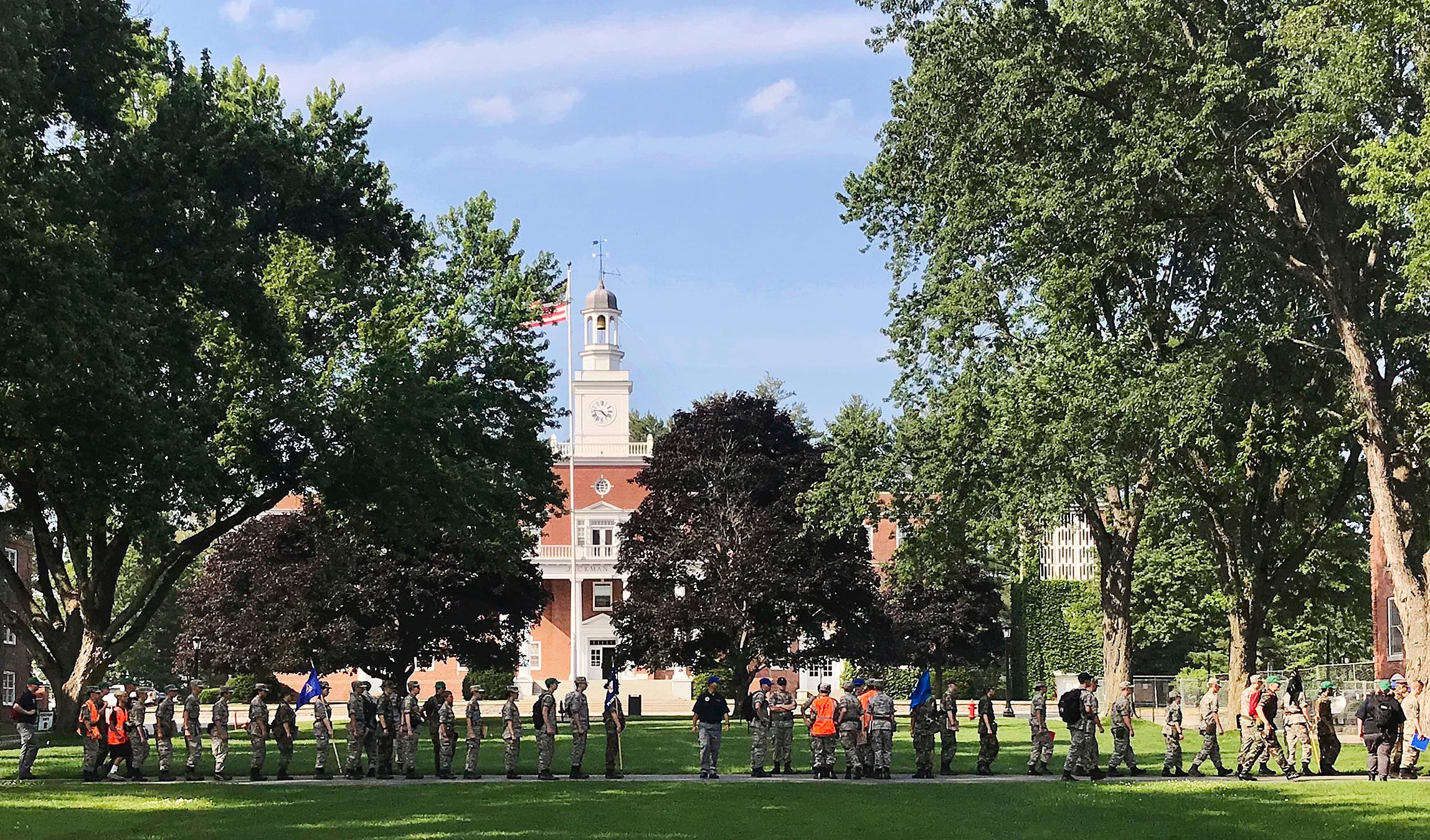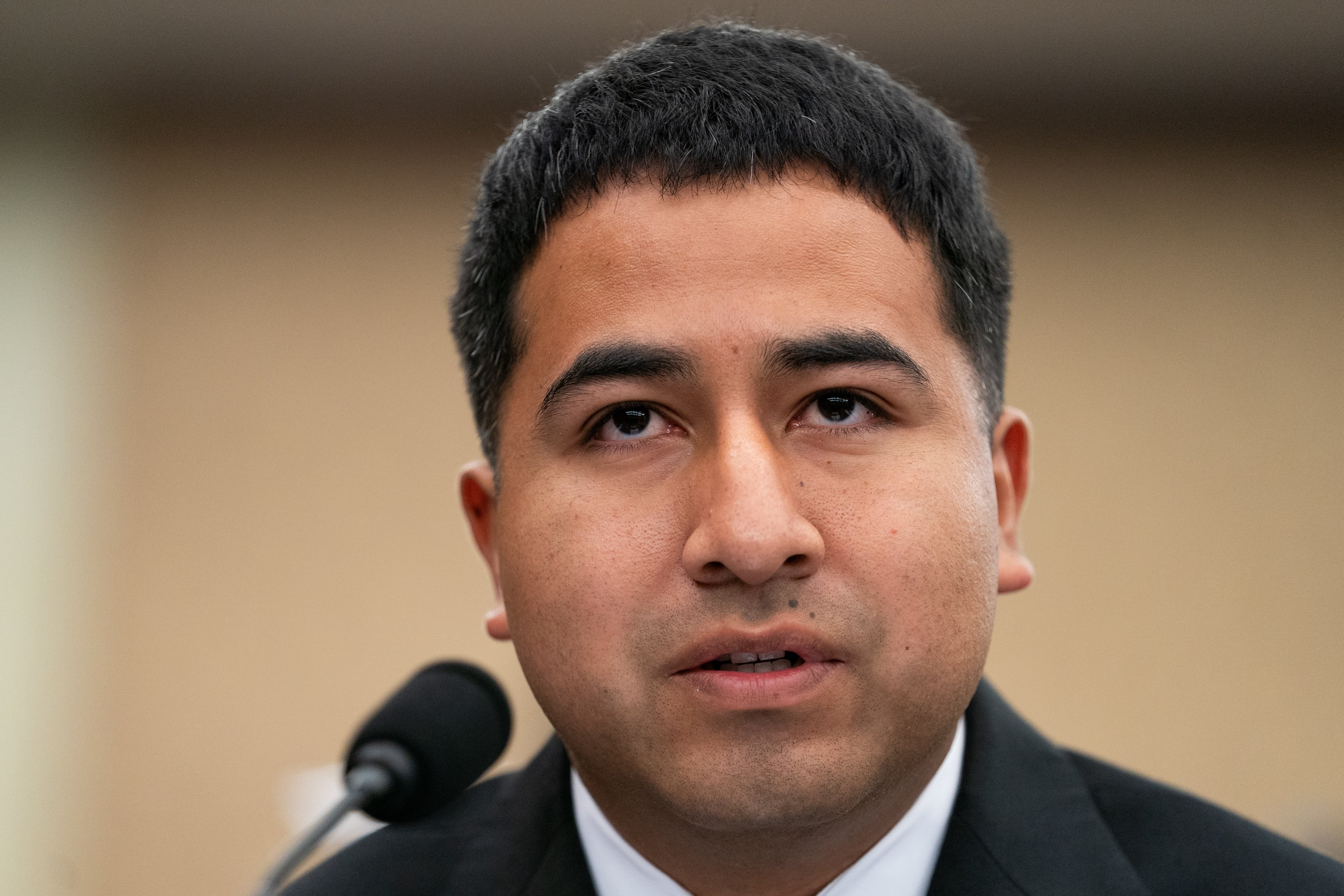House Republicans are moving to repeal rules preventing for-profit colleges from counting military education benefits as non-government funding in their financial accounting, a move that advocates said could allow predatory companies to prey upon student veterans.
Members of the House Education and Workforce Committee voted along party lines Tuesday to advance their section of the massive congressional reconciliation bill, which includes $330 billion in cuts to education spending over the next decade.
Panel Democrats objected to multiple portions of the bill and the GOP‘s overall approach to federal programming cuts.
But language in the bill repealing the “90/10 loophole” regarding GI Bill benefits drew particular concern from veterans advocates, who said the move represents an attack on oversight and accountability for post-military education benefits.
RELATED

“The closing of this loophole was widely celebrated as a bipartisan success in 2021,” said Rep. Mark Takano, D-Calif., a panel member and the top Democrat on the House Veterans’ Affairs Committee, during debate on the reconciliation measure Tuesday.
“Congress deemed that holding predatory for-profits accountable was necessary to safeguard federal education benefits and ultimately protect both taxpayers and students.”
By law, colleges and universities must have at least 10% of their revenues derived from non-federal sources in order to qualify for federal benefits. The idea behind the regulation is to ensure that for-profit institutions aren’t funded solely by federal monies, but instead also include significant investment by students interested in furthering their education.
But for years, GI Bill benefits and Defense Department Tuition Assistance programs were not counted as federal dollars for the 90/10 calculation, despite being taxpayer-funded benefits. As a result, schools could target veterans or troops receiving federal education payouts to boost their government funding well beyond the 90% cap.
Four years ago, as part of an emergency funding bill, lawmakers closed that loophole, reclassifying the GI Bill money and other military education programs as federal funding in the 90/10 calculations. The new rule has been in place for about three years.
But the Republican-backed reconciliation bill would revert to the pre-2021 rules. GOP committee members argued the change was needed to reduce regulations and promote more affordable options for student veterans.
“Rather than using the regulatory hammer to pick winners and losers, we should encourage all colleges to focus on student success,” said Rep. Burgess Owens, R-Utah.
Democrats disagreed. Advocates for years have argued that the loophole incentivized schools to recruit veterans to plus-up the amount of steady, government dollars they could collect, even in cases where the programs did not provide long-term benefits to the students.
“Unscrupulous institutions were using this to exploit student veterans,” said Rep. Suzanne Bonamici, D-Ore. “Now Republicans want to eliminate the rule altogether, removing a vital consumer protection and giving for-profit colleges free rein to continue to prey on students.”
VA pays out more than $8 billion in education payments annually.
A Democratic amendment to strip the repeal language from the reconciliation measure failed along party lines.
The provision could still be removed by House leadership before a full chamber vote, or by Senate lawmakers before final passage of the budgetary measure. Veterans groups who have been advocating on the issue for years promised to highlight it in coming weeks.
“The House of Representatives should be ashamed that they’re even entertaining the idea of reinstating this costly and wrongheaded policy that would threaten the future of veterans’ education,” Iraq and Afghanistan Veterans of America CEO Allison Jaslow said in a statement.
Republican leaders have said they hope to pass a final reconciliation bill package by mid-June.
Leo covers Congress, Veterans Affairs and the White House for Military Times. He has covered Washington, D.C. since 2004, focusing on military personnel and veterans policies. His work has earned numerous honors, including a 2009 Polk award, a 2010 National Headliner Award, the IAVA Leadership in Journalism award and the VFW News Media award.





